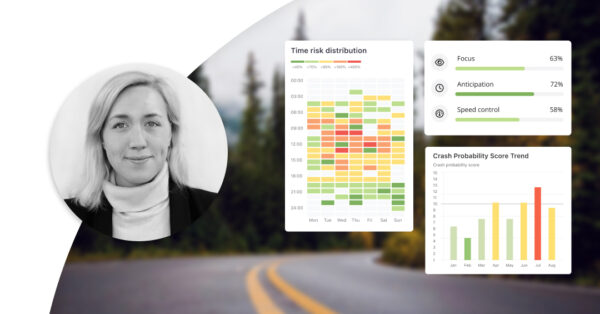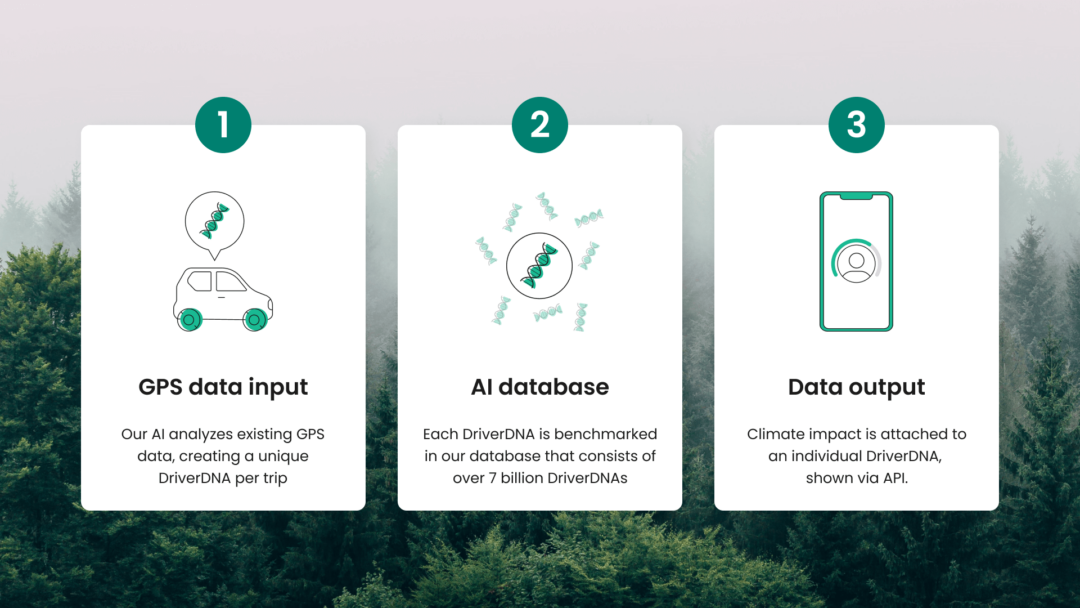
Act now for World Sustainable Transport Day

The United Nations’ World Sustainable Transport Day takes place on November 26. It’s aimed at enhancing the knowledge of the public on sustainable transport issues. To coincide with the day, and reinforcing our commitment to a future of safer, sustainable mobility, we are placing a spotlight on driver attitude and explaining how we can all act to reduce driver CO2 emissions TODAY.
What is World Sustainable Transport Day?
The United Nations’ General Assembly has declared November 26 as World Sustainable Transport Day in recognition of the important role of safe, affordable, accessible, and sustainable transport systems for all. It highlights that such systems support sustainable economic growth, improve the social welfare of people, and enhance international cooperation and trade among countries.
The UN General Assembly notes the importance of companies encouraging operations that minimize consumption of resources, and generate lower emissions of greenhouse gases, ozone-depleting substances, and other pollutants. World Sustainable Transport Day provides an opportunity to raise awareness and enhance knowledge.
The role of driver attitude
At Greater Than, we’re passionate about highlighting the significant influence of attitude on a driver’s climate impact. In fact, our research shows that, by encouraging drivers to be more aware of their driving, we can all reduce CO2 emissions by an average of 20%.
With a raft of incoming or evolving Environmental, Social & Governance (ESG) reporting regulations that are forcing businesses of all sizes to ramp up their decarbonization efforts, focusing on driver attitude could make a huge difference to the speed at which they achieve their goals.
Measuring driver attitude
For any organization using GPS data, it’s easy to uncover insights into driver attitude. At Greater Than, we utilize the power of artificial intelligence (AI) for good to make this easy for you.
The resulting climate impact insights can be used to measure CO2 emissions, support ESG reporting, facilitate the setting of climate reduction targets, and observe CO2 savings as a result of action taken.

How Greater Than’s AI converts GPS data into climate impact, as a result of driver attitude
Increasing awareness of the link between attitude and sustainable transport
Many drivers don’t realize that the way they drive has a significant impact on emissions. In fact, many businesses – even those setting ambitious emissions reductions targets – are failing to recognize the importance of the human factor on CO2 emissions.
Some of the world’s biggest companies are already publishing comprehensive sustainability reports, in which they detail actions like their transitions to electric vehicles, plans to optimize routes, and even steps to move distribution centers closer to customers. It’s surprising to see so little (if any) focus on the driver, and specifically on driver attitude, particularly when this can accelerate efforts to reduce CO2 emissions across all Scopes (1, 2, and 3).
Driving style influences CO2 emissions
There are lots of small actions that can have a big influence on emissions, fuel use, wear and tear on vehicles, and overall costs.
The good news is that there are lots of techniques that can be adopted by all drivers to reduce climate impact. These include:
- Being 100% focused (no distractions)
- Looking well ahead and being prepared for upcoming events
- Keeping a safe distance from the cars in front
- Avoiding stress behind the wheel
- Handling the vehicle smoothly
- Adapting your driving to the traffic and weather conditions
Simply making drivers aware of their actions, and the way this influences climate impact, can be a pivotal starting point for big change.
Making a world of difference in driver risk management
However you’re involved in transportation – whether you are a fleet management company, telematics provider, insurance firm, or mobility organization – you can help draw attention to the importance of a positive driver attitude.
By converting your GPS data into a climate impact score, you can measure CO2 emissions and quickly identify the drivers in need of eco-training. You can even use the data for your own sustainability and ESG reporting.
In quantifying drivers’ climate impact, you can empower drivers to understand their own impact on the environment and help to reduce their emissions by an average of 20%. Imagine the difference this can make across your operations, across the country, and across the world. Let’s take action together for World Sustainable Transport Day and do something that will make a measurable difference, every day.
How to access new climate impact insights from your driving data
At Greater Than, our AI converts GPS driving data into a Climate Impact Score. It does this by comparing the data against billions of driving patterns, enabling us to rapidly calculate climate impact because of driving attitude.
The Score can be enhanced with a number of add-on features, including our Climate Impact Dashboard (dynamic insights that can be filtered by time, day, geography, trip, etc) or our Climate Impact Tool (a management tool that makes it easy to identify the highest/lowest eco drivers, contributory factors, and enables progress to be tracked). We can also provide ready-made ESG reports, with comprehensive insights into your organization’s sustainability performance, including CO2 emissions, targets, progress etc.
Book a meeting with us to learn more about how we can help you achieve your sustainable transport goals.
External links:


